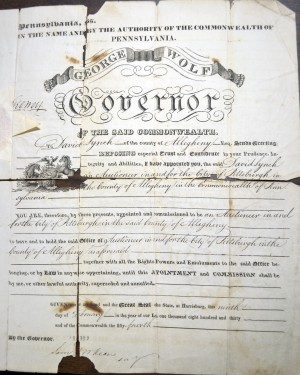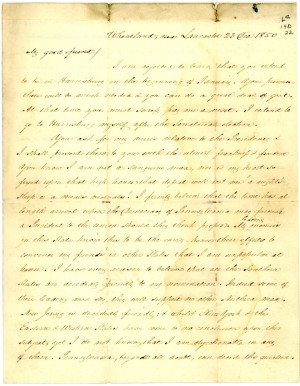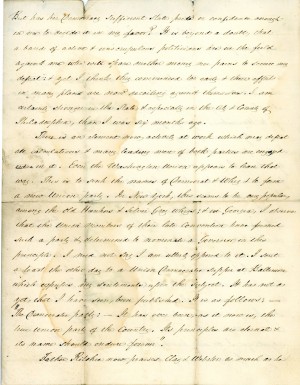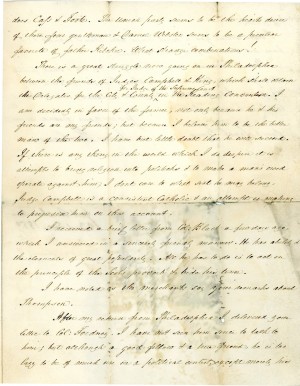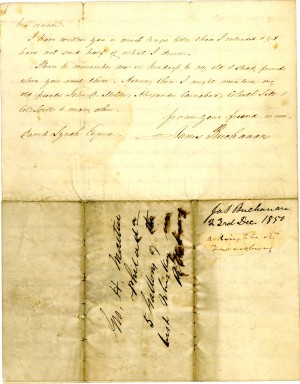Some of the materials that the Philadelphia Archdiocesan Historical Research Center has in its collection has very little, or perhaps nothing, to do with diocesan history, or more broadly, the history of Catholicism in the U.S.
PAHRC's collection not only includes the archives of the Philadelphia Archdiocese, but also the collections of the American Catholic Historical Society of Philadelphia, the oldest Catholic historical society in the country. In it's 1885 charter, the ACHS stated that it's purpose "shall be the preservation and publication of Catholic American historical documents, the investigation of American Catholic history, especially that of Philadelphia, and the development of interest in Catholic historical research." It appears, however, that like many historical societies, the ACHS sometimes accepted materials that did not relate to it's mission statement, or fall within a collection scope- if one had even been articulated- especially if one of its members owned or had access to historic materials.
An interesting small collection that seems to fall within this category is the David Lynch Papers, 1830-1865 (MC 13), possibly collected by the ACHS due to the mere fact that Lynch may have been Catholic. A tobacconist from Pittsburgh, PA, David Lynch (1793-1860) had served as a major in the land and marine services in the War of 1812. Appearing to have been politically well-connected, the governor of Pennsylvania appointed Lynch as an auctioneer for the city of Pittsburgh around 1830. Lynch was also appointed as Pittsburgh's Postmaster in 1833.
A staunch Democrat who was actively involved in politics, David Lynch happened to be friends with fellow Pennsylvanian James Buchanan. The collection includes a few letters between the two men that were written during Buchanan's terms as a Congressman and President.
In the following letter, dated December 23, 1850, sent from his Wheatland estate in Lancaster, PA, Buchanan provides Lynch with a lengthy response regarding the likelihood of Buchanan becoming President. The letter provides a good deal of insight into Buchanan's personality and political philosophies as well as the current state of politics in both Pennsylvania and the country. Part of the first page of the letter reads:
You know I am not a sanguine man, nor is my heart so fixed upon that high honor that defeat will cost me 'a night's sleep or a meal's victuals.' I firmly believe that the time has at length arrived when the Democracy of Pennsylvania may furnish a President to the union should they think proper...I have every reason to believe that all the Southern States are decidedly friendly to my nomination. Indeed some of their leading men say, they will support no other Northern man.
Part of the second page reads:
There is an element now actively at work which may defeat all calculations and many leading men of both parties are engaged in it. Even the Washington Union appears to lean that way. This is to sink the names of Democrat and Whig and to form a new Union party.
Buchanan shares his views on the separation of church and state on the third page:
If there is anything in world which I do despise it is attempts to bring religion into politics and to make a man's creed operate against him, I don't care to what sect he may belong.
The collection also includes estate papers relating to James Buchanan's Pennsylvania properties, presumably because Lynch as an auctioneer was somehow involved with the transfer of land.
A small collection that seemingly has little or nothing to do with Catholicism in America, the David Lynch Papers, nevertheless has historic value. Materials in the collection offer a glimpse into state and national politics during the antebellum period, including information relating to a significant national figure.
A full finding aid for the collection will be available shortly.


